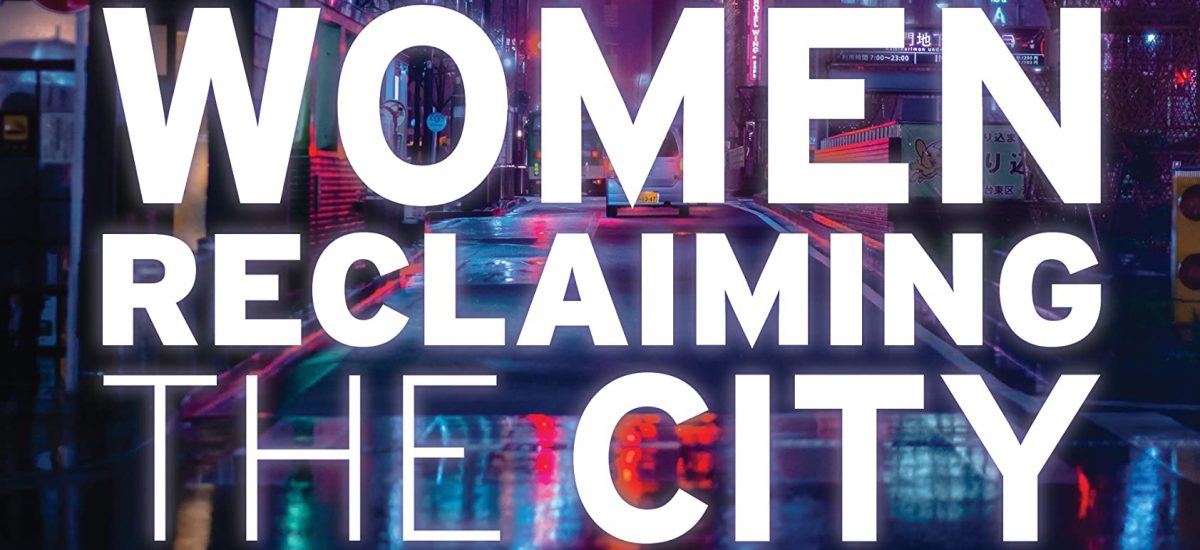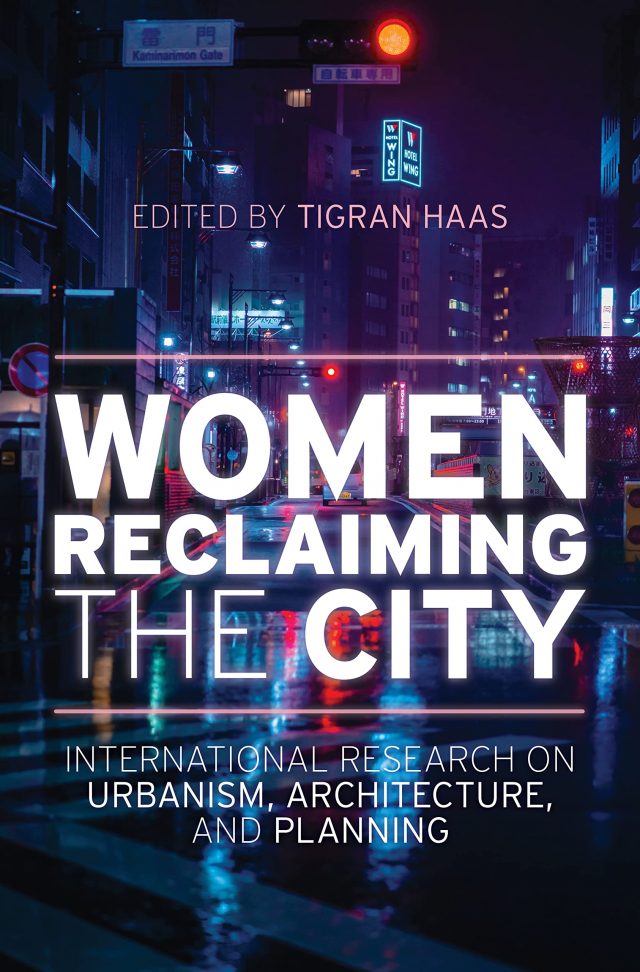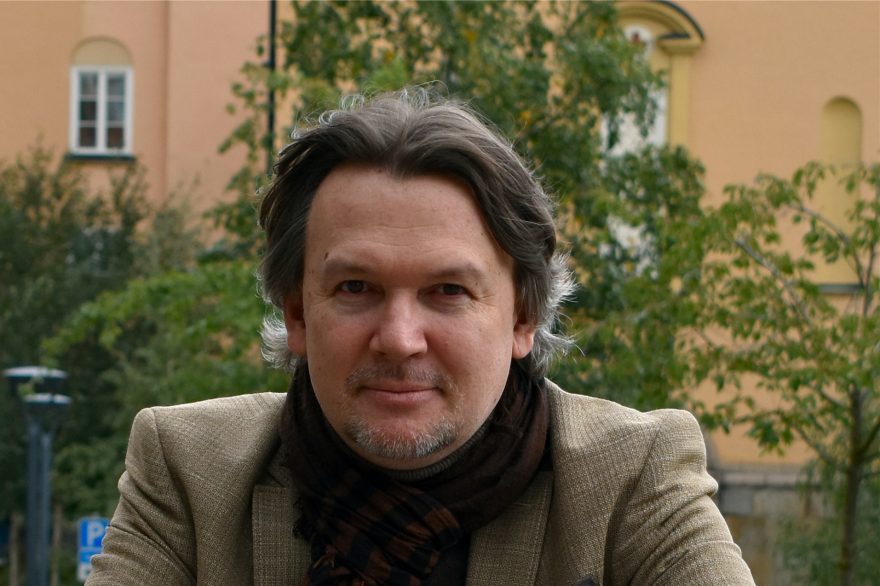
Women Reclaiming the City – International Research on Urbanism, Architecture, and Planning
On 8 March, the world celebrates International Women’s Day. “For too long, we have largely understood the world through the male voice. Women Reclaiming the City changes that. With this anthology, Tigran Haas brings to us the voices of the foremost female contemporary urban scholars that present diverse perspectives on architecture, urban design, and planning for a more humane, inclusive, and resilient urban future”, says Vikas Mehta, professor at the University of Cincinnati. The book is intended for scholars of urban studies, policymakers, and city planning professionals, and the reviews have been very positive.
Women Reclaiming the City , edited by Digital Futures faculty member Tigran Haas is a compilation of female contemporary urban scholars based on the Athena Talks series of lectures at the KTH Royal Institute of Technology. The originality lies in the variety of presented themes and the type of highly respected women researchers. This book is the first in which current societal themes revolving around urbanism, architecture, and city planning are put forth solely through female perspectives. It reveals the importance of having female lenses on certain societal debates.
, edited by Digital Futures faculty member Tigran Haas is a compilation of female contemporary urban scholars based on the Athena Talks series of lectures at the KTH Royal Institute of Technology. The originality lies in the variety of presented themes and the type of highly respected women researchers. This book is the first in which current societal themes revolving around urbanism, architecture, and city planning are put forth solely through female perspectives. It reveals the importance of having female lenses on certain societal debates.
Twenty-five leading female urban scholars draw on principles, concepts, and positions that are foundational to other frameworks and fields – specifically, critical studies, indigenous and ethnic studies, postcolonial theory, queer theory, feminist theory, progressive urban theory, social ecology, urban planning and design, architecture, urban economics and urban social geography, landscape urbanism, new urbanism, heritage management and urbanism, political ecology, and cultural studies— to present alternatives to the current classical theories and conceptualizations that have failed to engage a genuinely intersectional analysis of the dominant city and urban discourses, policies, and practices.
With International Women’s Day soon coming up, Digital Futures took the opportunity to meet up with Tigran Haas, Associate Professor at KTH, Director of Halcyon Athenaeum Laboratory HAL and a Former Director of International Research Centre on Future of Places, CFP.

Tigran Haas
Hi Tigran, working as an urban scholar, what is your view on achieving equality, justice and equity in cities? Is it possible at all?
– Achieving equality, justice, and equity in cities requires a multifaceted and holistic approach that addresses the social, economic, and political factors that contribute to inequality and injustice. I know it sounds easier said than done but it is paramount to have these issues imbedded in any thinking about city planning, though it is one of the most complex cluster issues in urbanism. There is no nostrum or handbook how to do this but some of the major principles are the following five, those that theory and practice pushes us towards.
Firstly, addressing systemic discrimination is key. This involves identifying and challenging the policies and practices that perpetuate discrimination and inequality, such as housing segregation, unequal access to education and healthcare, and discriminatory policing practices.
Secondly, promoting economic equality is a must. This involves creating policies and programs that promote economic growth and development, while also addressing income inequality and poverty. This could include initiatives like affordable housing, access to job training and education, and living wage policies.
Thirdly, ensuring inclusive governance is extremely important. This involves promoting the participation of diverse communities in the political process and decision-making, and ensuring that government institutions are responsive and accountable to the needs and concerns of all residents.
Fourthly, fostering social cohesion is a sine qua non. This involves promoting diversity and inclusivity, building social connections and networks, and creating safe and welcoming public spaces that are accessible to all.
And finally, addressing environmental injustice. This involves addressing the disproportionate impact of environmental hazards and pollution on marginalized communities, and promoting sustainable and equitable development practices.
Lastly we need to think of “Spatial Justice” in cities, a beautiful and crucial urban term that my late colleague Professor Edward Soja coined in 2010. According to him, spatial justice seeks to promote more progressive and participatory forms of democratic politics and social activism, and to provide new ideas about how to mobilise and maintain cohesive collations and regional confederations of grassroots social activists. “Spatial justice” as such is not a substitute or alternative to social, economic, or other forms of justice but rather a way of looking at justice from a critical spatial perspective.
Can you tell us more about feminism and urbanism, that is, what might be the main principles of feminist city planning and urban design?
– Doreen Massey that wrote about space and place from a feminist perspective and Leslie Kern that formulated some of the best principles of feminist city planning has been my role models for this and of course the great Jane Jacobs, one of the leading urban scholars ever. Feminist city planning is an approach to urban planning and design that aims to address the ways in which cities are shaped by gender and to create more equitable, just, and inclusive urban environments. This perspective recognizes that cities have historically been designed primarily by and for men and have often overlooked the needs and experiences of women, girls, and gender-nonconforming individuals. Feminist city planning seeks to rectify these biases and create cities that are more accommodating and supportive of the diverse needs of all people.
Feminist city planning takes into account the gendered impacts of urban development and addresses issues such as access to safe and affordable housing, public spaces that are welcoming to all genders, transportation systems that are safe and accessible for all, and the provision of essential services such as childcare and healthcare. It also considers the role that gender plays in shaping people’s experiences in the city, including experiences of violence, discrimination, and poverty.
Feminist city planning is interdisciplinary and draws on theories and practices from urban planning, feminist geography, sociology, and architecture, among others. The goal of this approach is to create cities that are more equitable, sustainable, and livable for all, with a focus on the experiences and perspectives of marginalized groups, including women, girls, and gender-nonconforming individuals.
How do you see the role of women in a digital society and smart city development?
– The role of women in digital society and smart cities development is essential and crucial for creating inclusive, equitable, and sustainable urban environments. Women have historically been underrepresented in the technology industry, and this has contributed to a lack of diversity in the development of smart city solutions. Women’s participation in the digital economy and smart city development can help to address these issues by bringing diverse perspectives, experiences, and ideas to the table.
Women can also play a key role in identifying and addressing the specific challenges faced by marginalized communities, such as women, people of color, and people with disabilities, in accessing and benefiting from digital technologies and smart city solutions. Furthermore, they can also contribute to the development of smart cities by using technology to create innovative solutions to urban challenges, such as improving public transportation, reducing energy consumption, and increasing community engagement and participation.
To ensure that women have a meaningful role in the development of digital society and smart cities, it is important to create inclusive policies and programs that promote diversity and equity in the technology industry.
Your latest book is focused on International Research on Urbanism, Architecture, and Planning, but from a woman’s perspective, solely written by leading female urban scholars. Why have you decided to do that?
– This has been an idea of mine that goes back ca 10-12 years. Fortunately I was able to implement it in the Athena Distinguished Female Scholars series in the Centre for the Future of Places I directed from 2016-2021. There are multiple reasons for why such a book is needed: Diverse perspectives: Women have unique experiences and perspectives that can be different from those of men. A book written by women can offer a diversity of viewpoints and ideas that may not be found in books written solely by men. This is closely related to representation. Historically, women have been underrepresented in architecture and planning and their stories and voices have often been silenced or ignored. A book written only by women can help to address this imbalance and provide a platform for women’s voices to be heard.
Furthermore the issue of empowerment is crucial; a book written only by female urban scholars can serve as a powerful tool for empowering women in urbanism and inspiring them to pursue their own goals and ambitions. It can also help to challenge and dismantle gender stereotypes and biases that may be perpetuated in these fields. Overall, such an anthology, a book written solely by female scholars is extremely important in promoting gender equality, celebrating women’s achievements, and amplifying their voices and perspectives in urbanism, city planning and urban development. Finally it is a unique opportunity to assemble some of the brightest and finest urban minds in one place, scholars that have left a major impact in different fields of study dealing with cities.
What is feminism for you, and are you a feminist or a post-feminist?
– I would say in the simplest possible terms that one is a feminist is that one acknowledges that men and women are (unfortunately) not equal. This is extremely disturbing, unjust, unsustainable, undemocratic and unacceptable and something needs to be done, i.e. to remedy this injustice. So it boils down to dynamic advocating for gender equality and the rights of women. At its core we should seeks to challenge and dismantle the patriarchal systems that perpetuates gender-based discrimination and oppression.
I see myself as both feminist and post-feminists to be honest. I belong to that group that sees post-feminism as a necessary evolution of feminist thought, one that acknowledges the progress made by feminist movements while also recognizing the need for continued activism and advocacy. In this more nuanced perspective, critical reflection on the achievements and limitations of feminism is paramount, and also a new call for novel and outside-of-the-box approaches to address ongoing issues related to gender equality is crucial.


